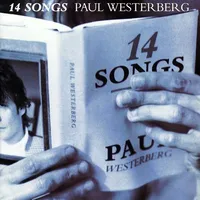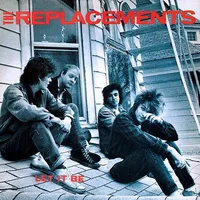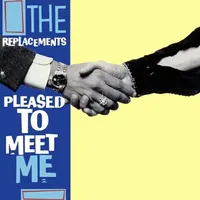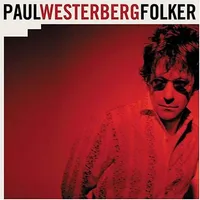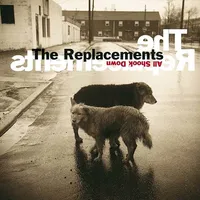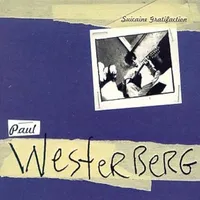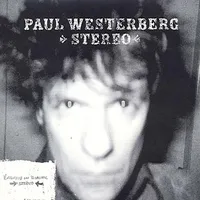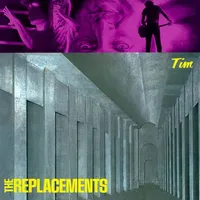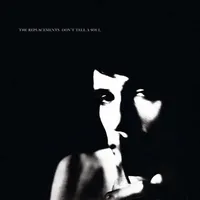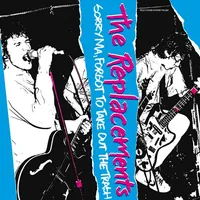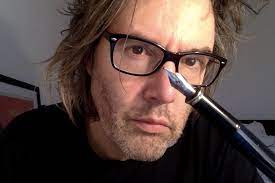The Replacements and Paul Westerberg albums you should definitely own
He's an underachiever and proud of it, man: These are the best from Paul Westerberg, from the Replacements to a delightfully erratic solo career
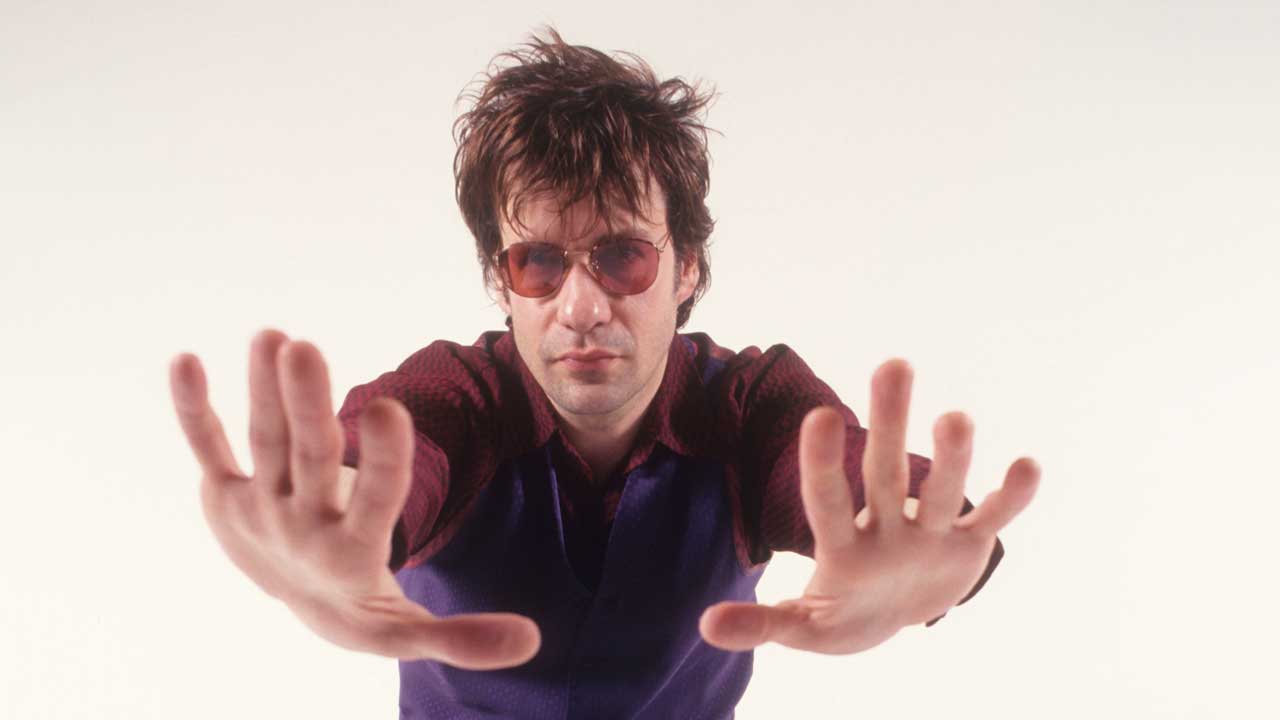
It may sound like the format for a late night quiz show, but Paul Westerberg was once a millionaire for a day. “It’s true. I really was a millionaire for one whole day,” he once told this magazine. “And then came the manager, the taxman, and I bought a house… The money was gone in an afternoon, literally.”
Westerberg’s lackadaisical approach to his fleeting fortune will surprise no one who ever followed the waning fortunes of his former band The Replacements. They approached their shows as a mugger does their victim. Hamstrung by their barely suppressed anger (a fired-up Westerberg would sometimes harangue his own band mid-show, as well as the front row), constant drinking and disdain for an audience that showed them even the slightest hint of adulation meant their set was sometimes best enjoyed through the fingers.
It emboldened their legend though. And as Westerberg developed as a singer and songwriter who managed to combine the roles of hopeless adolescence and heartbroken troubadour, he and his band’s stature grew inestimably. Even now, when people mention a possible Replacements re-formation, men of a certain age get mistyeyed and look off into the distance wistfully.
Somewhat inevitably, The Replacements splintered. Westerberg insists that they left him, that he never left them. The 2006 compilation Don’t You Know Who I Think I Was? The Best Of The Replacements featured two brand-new tracks and saw the band reunite briefly even if it was only in the studio. The new material, especially the excellent Message To The Boys, sounded surprisingly fresh, and it finally put paid to the long-standing, sometimes grumbling feud between Westerberg and Tommy Stinson (then Guns N’ Roses’ bassist).
In 2012 the band came together again, recording the limited edition Songs For Slim EP to raise money for former bandmate Slim Dunlap, who had suffered a stroke. This was followed by festival shows in 2013 and 2014, and, the following year, the excellently-titled Back by Unpopular Demand tour.
Westerberg’s solo career has been as turbulent as his band’s ever was. He’s swapped labels several times, and created a musical alter ego, Grandpaboy, for three albums and an EP. In 2006 he wrote the bulk of the material for the soundtrack to the animated movie Open Season. He even turned up with his family for the premiere, looking a bit startled by all the flashing cameras on the red carpet.
Since then it's been mostly radio silence, apart from the occasional low-key release. In 2016 Westerberg hooked up with Juliana Hatfield as the I Don't Cares to release the album Wild Stab, and the following year he uploaded eight songs to Soundcloud under the name User 964848511. Let’s hope there's more, because although he may alienate and occasionally even turn his back on his audience, as a songwriter Westerberg rarely disappoints.

Paul Westerberg - 14 Songs (Sire/Reprise, 1993)
This is Paul Westerberg’s first solo album proper, although it could be argued that The Replacements’ final album, 1990’s All Shook Down, was a solo album in everything but name. He admits that he was terrified of stepping out on his own, especially playing live, but here he sounds assured.
He addressed his cultish, almost iconic status on rousing opener Knockin On Mine, brought in former Faces keyboard player Ian McLagan to emphasise the Faces-like rattle of Silver Naked Ladies, and in the brittle Things (a song he admits made him cry when he recorded it) managed to sound both eloquent and damned.
Replacements - Let It Be (Twin/Tone, 1984)
Westerberg had always admitted his unease at being in the recording studio, which is why most of The Replacements’ albums up until Let It Be had been recorded with the band drunk, and essentially live in the booth; they could commit an entire album to tape in just three or four hours.
Staying straight and working hard on Let It Be caused Westerberg to complain that the songs were, “missing a certain spirit”. And we don’t think he meant whisky. Regardless, the hard work paid off in songs like the loping Androgynous, the rolling I Will Dare and a perhaps surprising cover – and a straight take – of Kiss’s Black Diamond.
Replacements - Pleased To Meet Me (Sire, 1987)
The Replacements had all but broken up before they went in to record this, their second major-label album. After firing their increasingly addled guitarist Bob Stinson (he’d be dead from an OD less than 10 years later) they’d called it quits, but the chance to work with Big Star’s Alex Chilton in Memphis reignited their interest in being a band again.
The demos recorded there went nowhere until producer Jim Dickinson was brought in. It was his influence that saw the band introducing vibes to songs like Skyway, organ on the marching Valentine and bringing in the Memphis Horns to add brilliant splashes of colour to Can’t Hardly Wait.
Paul Westerberg - Folker (Vagrant, 2004)
The album that threatened to spark a renaissance of interest in Westerberg’s solo career, Folker was warmly reviewed, and backed by a tour that actually turned a profit – the first series of shows he did, either with a band or as a solo artist, that did so.
Overall the album was sparse-sounding and filled with strong material that reflected Westerberg’s place in the world as a husband, father and son. The latter was touched upon poignantly with the touching My Dad, a song about his father’s ailing health. Sadly the song wasn’t finished in time for him to hear before his death.
Replacements - All Shook Down (Warner Bros, 1990)
Divisive as Replacements albums go, as some people don’t consider it a Replacements album at all. In the liner notes Westerberg himself describes it as “this recorded thing”, his is the only photo on the artwork, and there’s no band listed, just a register of contributing musicians in alphabetical order.
When asked if it was a band album, Westerberg was as enigmatic as ever: “Everyone plays on the record, on at least one track.” Beautifully downbeat regardless, with songs like the lilting The Last and the gentle, aching Nobody, the album was perhaps the sound of The Replacements ending
Paul Westerberg - Suicaine Gratifaction (EMI, 1999)
This was Westerberg’s first album for Capitol – and his last for them. He had been courted by label head Gary Gersh, who then brought in producer Don Was to help piece the album together.
Lean and almost stark in parts (it’s difficult to see just what there was for Don Was to actually produce), for the most part it was acoustic guitar and piano, and songs like It’s A Wonderful Lie and Bookmark represent some of Westerberg’s strongest solo work. Gersh was ousted from the label on the very day Westerberg mastered the album. It was, according to the singer, “the last straw”.
Paul Westerberg/ Grandpaboy - Stereo (Vagrant, 2002)
Following the Capitol debacle, Westerberg recorded three albums under the Grandpaboy guise. Eventually Vagrant Records released Stereo using Westerberg’s name and added the previously limited release Mono as a bonus disc.
Two years in the making, it was a ragged, heartfelt answer to the quietly considered questions Westerberg had posed with Suicaine Gratifaction. It was recorded mostly live, at night in his basement while his family slept, and Westerberg snaps and rants his way through songs with titles like Nothing To No One and Don’t Want Never to thrilling effect.
Replacements - Tim (Sire, 1985)
This, The Replacements’ major-label debut, was originally going to be called either Whistler’s Mammy or Van Gogh’s Ear, but the band eventually settled on the monosyllabic Tim simply because it made them laugh. Critically acclaimed but a flop commercially (something the band were going to have to get used to from here on in), the album sounded like an assured follow-up to the previous year’s much admired Let It Be.
From the rousing Bastards Of Young to Left Of The Dial (their paean to college radio) and the lingering Here Comes A Regular, it appeared to the unknowing eye that The Replacements were on their way. Ed Stasium's 2023 Let It Bleed edition remix fixes the famously thin original sound.
Replacements - Don’t Tell A Soul (Warner Bros, 1989)
This album managed to alienate an audience who were expecting The Replacements to never grow up. In retrospect it’s difficult to see what all the fuss was about. Guitarist Bob Stinson had long gone and had finally been replaced by Slim Dunlap, but the band’s essence was still intact.
The record is overall a more melodic proposition, but it still retains Westerberg’s sharp-tongued asides and showcases a band playing to their strengths. Darlin’ One is elegiac and grand; I’ll Be You is so engaging that Tom Petty stole its ‘a rebel without a clue’ refrain; Anywhere’s Better Than Here rages indomitably against the dying of the light
...and one to avoid
You can trust Louder
Replacements - Sorry Ma, Forgot To Take Out The Trash (Twin/Tone, 1981)
Although this snotty debut album from 1981 isn’t without charm, it’s hardly the place to start when you’re looking for the genius in Paul Westerberg’s songwriting. Played fast and loose and obviously influenced by the Ramones and fellow Minneapolis band Hüsker Dü, it’s more about the sound than the songs.
Westerberg shouts himself hoarse throughout most of it, although Johnny Thunders tribute Johnny’s Gonna Die, Shiftless When Idle and I’m In Trouble hint at Westerberg’s ever burgeoning writing prowess which would come to fruition with the Hootenanny album two years later.
Sign up below to get the latest from Classic Rock, plus exclusive special offers, direct to your inbox!
Philip Wilding is a novelist, journalist, scriptwriter, biographer and radio producer. As a young journalist he criss-crossed most of the United States with bands like Motley Crue, Kiss and Poison (think the Almost Famous movie but with more hairspray). More latterly, he’s sat down to chat with bands like the slightly more erudite Manic Street Preachers, Afghan Whigs, Rush and Marillion.
- Fraser LewryOnline Editor, Classic Rock
